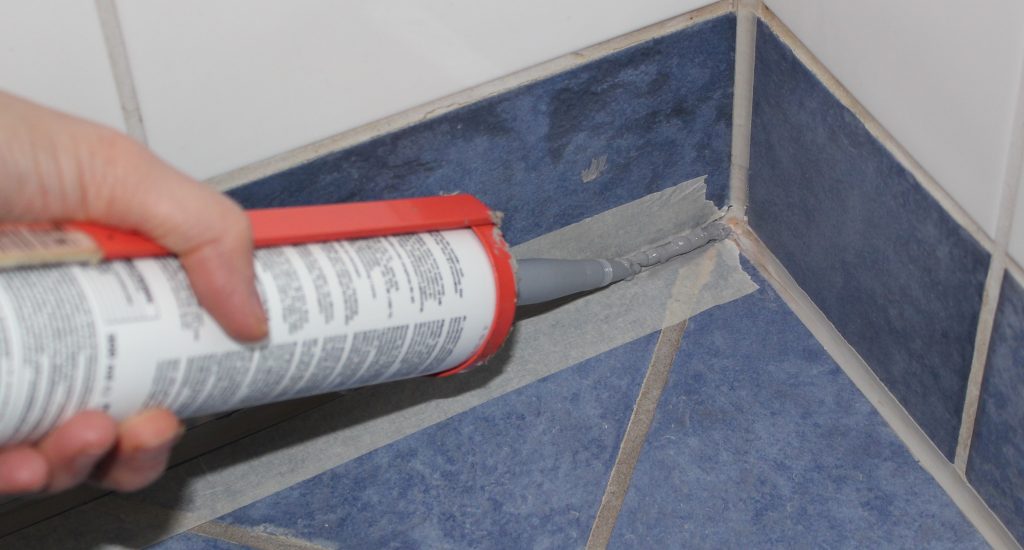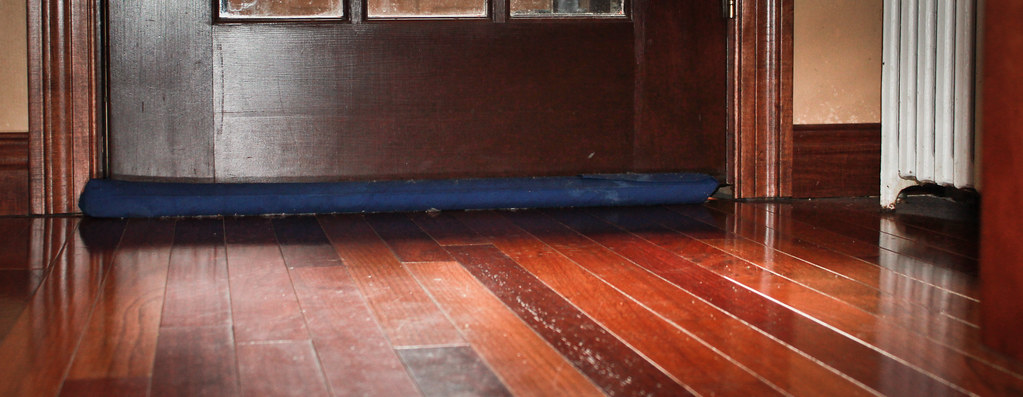The snow has already begun to fall this winter, so it’s vital to start thinking about how you can protect your home from the winter weather. There are some simple ways to prevent minor inconveniences, and larger problems that may end with an insurance claim. Dozens of people file insurance claims each winter due to the harsh climate. Many of these claims can be avoided with preventative measures put into place.
At the same time, accidents happen and it can be difficult to dodge every issue that arises, even when your doing everything you can to winterize your home. It is important to make sure you have homeowners’ insurance to protect you from complications such as roof damage or leaking from heavy snow. It is smart to speak with an independent insurance advisor to learn what is and isn’t covered in your policy. For example, many people do not know that you often need to buy a separate policy to cover flooding. Flooding caused by snowmelt is common, and a costly fix without insurance. A good independent insurance agent will make sure that you understand your coverage and get you the coverage you need at the lowest possible price.
Of course, it is best to avoid insurance claims in the first place. Prevention will save you and your family lots of time and money.
10 to Protect your Home Against Winter Weather, According to Chubb.
1. Seal Around Windows and Doors.
Caulking around windows and doors keeps warmth trapped inside your home, while keeping cold air out. This simple task can save you a ton of money on your heating bill.

2. Perform a Home Energy Audit.
A home energy audit is a thorough analysis of your home’s energy use. A professional will examine each room in your home with blower doors, infrared cameras, gas leak and carbon monoxide detectors, moisture meters, and non-toxic smoke pens. This will help you uncover issues in your home that you can resolve before winter begins.
3. Use a Draft Snake or Weather Stripping Beneath Door.
Although caulking under your door is a more permanent method of keeping warm air in and cold air out, using a draft snake or weather stripping beneath your door is a perfect short-term method. If any sunlight is able to seep through your door, cold air will be able to make its way in as well. Click here for more information on how to keep your home sealed and spot leaks.

4. Add Insulation- Especially Around Pipes.
It is important to keep your entire home insulated in order to conserve heat in the winter and keep cool air in during the summer; this includes your attic, walls, and floors. But adding insulation around pipes is especially beneficial since burst pipes (caused by cold weather) can be costly. While homeowners’ insurance covers burst pipes, they usually will not cover the entire cost.
5. Update Your Appliances.
Upgrading your appliances to energy efficient appliances. An energy efficient home means that your home will use less electricity to operate. The saved electricity will be geared toward keeping your home warm this winter. The main appliance you should consider updating is the furnace.
6. Programable Thermostats and Smart Thermostats/Temperature Monitor.
Set your home to a desired temperature using a programable thermostat. This will ensure your home doesn’t get too cold. According to Chubb, keeping your home below 55 degrees Fahrenheit can lead to substantial problems. They also suggest keeping your home no lower than 65 degrees Fahrenheit to avoid issues.
Additionally, “smart thermostats or temperature monitors will wirelessly alert you to unusually low temperatures in the home, which is a possible precursor to freezing pipes.” When pipes freeze, it can cause connecting faucets and pipes to freeze and break as well.
7. Protect Your Pipes From Freezing.
One easy way to prevent your pipes from freezing is to regularly run water from all faucets in your home. Even just a small amount from both hot and cold-water lines can be enough to relieve pressure and prevent freezing in your pipes.
Install a water flow monitoring / flow based leak detection system. These systems detect abnormal water flow typically caused by a burst or faulty pipe. When abnormal flow is detected, the system will automatically shut-off / close valves in order to minimize potential damage.
8. Lower Your Water Heater Temperature.
Turning the maximum temperature down, even just a little bit, is a quick and easy way to conserve energy and save money.
9. Regularly Clean Your Gutters.
Clogged roof gutters, downspouts, and exterior drainage systems will cause drainage issues. Water overflow and ice buildup due to winter storms can quickly clog your gutters. Cleaning them on a regular basis will hinder drainage issues and insurance claims. You can also invest in gutter guards or heated cables, to prevent clogging and ice damming on your roof.
10. Invest in a Generator.
With the abundance of recent power outages, backup generators are becoming increasingly worthwhile. Even in the winter months, we have seen devastating power outages that affected communities for several days. Without power during the winter months, you cannot run your heater and furnace to protect your home from many of the issues listed above.
If you can afford a backup generator, they could save you money from an insurance claim in the long run. You also will not have to worry about freezing and keeping your groceries fresh!
More Ways to Protect Your Home From Winter Weather.
1. Invest in a New Roof or Roof Repairs.
Some of the most expensive insurance claims during the winter months are due to heavy snow collapsing or damaging roofs. If your roof is getting old or is already damaged, you are especially at risk. Although investing in a new roof may be expensive, it is a worthwhile investment that will likely save you money in the long run. Not to mention, it will greatly boost the value of your home as well!
2. Trim or Remove Trees Near Your Home.
Trees that are very close to your home, and especially trees that hang above your home, pose a great risk of damage. Snow fall weighs down tree branches, often causing them to fall inflicting damage to your home (typically the roof). Strong winds can also cause tree branches to hit or break off and hit your home. During very strong storms, this can even result in broken windows.
3. Shovel and Salt Your Sidewalk.
Sidewalks are utilized by the public, yet it is still the homeowner’s responsibility to keep them safe. If a pedestrian slips and falls on your part of the sidewalk, you could be liable if they get hurt. If the person gets seriously injured, they could potentially sue and win the suit.
4. Prevent House Fires.
House fires increase in the winter due to all of the heating appliances people use to warm their homes. Heating appliances are the second major cause of house fires, right behind cooking fires. There are several tips and tricks that can help you prevent house fires, some being more obvious than others.
- Be careful where you set space heaters. Space heaters are the leading cause of house fires among all types of heating equipment, usually because they are placed to close too flammable objects.
- Sweep your chimney and maintain fireplaces. Among heating equipment, fireplace and chimney fires are the second leading cause of house fires. 68% of the time, unkept fireplaces and neglecting to sweep chimneys are to blame.
- Never leave electric devices, heating appliances, candles/open flames unattended or near flammable objects. A couple of minutes is all it takes for a candle or electric device to fall over and start a fire. A fire may start more quickly with flammable objects nearby. An easy fix is to keep a couple of feet between flammable objects and such devices / appliances. Also, be sure to blow out candles and unplug devices when you leave a room.
- Christmas trees are fire hazards. Most fires are associated with real trees, although both real and artificial Christmas trees can be fire hazards. If you have a real tree, do not keep it for more than a month, and you should regularly water it to prevent it from drying out and becoming more of a fire hazard. Artificial trees often have electrical wiring within the tree that leads to fires, especially when placed too close to other flammable objects such as space heaters.
Protect Your Home From Winter Weather Through Insurance
There are a ton of ways to keep your home protected during the winter season, but sometimes accidents or unavoidable situations happen anyway. Making insurance claims can be costly, but paying those for repairs without insurance is even more costly. Therefore, it is paramount to understand what is covered under your current insurance, and how you can fill any potential gaps in your insurance. It is essential that you speak with a trusted, independent insurance advisor for details about your coverage, and advice about what coverage is right for you based on your budget.
What Does Home Insurance Usually Cover to Protect From Winter Weather?
- Burst/frozen pipes
- House fires
- Ice dams: forms on a roof when snow melts and refreezes near the gutters or roof edges
- Damage to home or roof from:
- Fallen tree branches;
- Freezing rain;
- Wind;
- Falling snow;
- Heavy accumulated snow
What Doesn’t Home Insurance Usually Cover to Protect From Winter Weather?
- Flooding (You must buy a separate flood insurance plan).
- Damage due to homeowner negligence: Examples include keeping your home at extremely low temperatures or failure to maintain and protect your home in the first place.
- Cosmetic damage: Anything that does not affect the form or functionality of the home.
TDA Insurance is Dedicated to Protecting Your Home From Winter Weather
Our local team at TDA has an abundance of knowledge about how to best protect your home from the harsh winter climate we experience in Michigan. Our independent agents are experts at understanding the details about coverage at the countless insurance companies we carry, to ensure that you get the coverage that best suits your individual needs. As a family business, we are happy to treat all of our clients like family. Therefore, we take pride in going the extra mile to make sure our clients understand their coverage and are aware of how to prevent costly claims.
Click HERE to speak with one of our agents about any questions you may have.
Click HERE to start a FREE insurance quote on our website.
